Search results for: “renewables”
-
Solar Use within the Oil Industry?
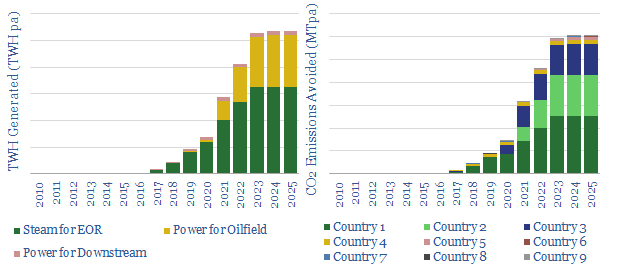
20 solar projects are being undertaken across the oil industry, to reduce CO2 emissions. But today’s project pipeline will obviate less than 1% of oil industry CO2 by 2025. So momentum must build behind these leading examples, which are: steam-EOR in Oman and California, Solar PV in the Permian, and specific companies such as Occidental,…
-
Hybrid horizons: industrial use of batteries?
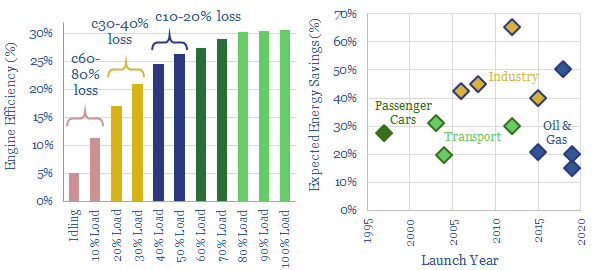
Gas and diesel engines can be 30-80% less efficient when idling, or running at low loads. This is the rationale for hybridizing engines with backup batteries. Industrial applications are increasing, achieving 30-65% efficiency gains, across multiple industries. In 2018-19, the biggest new horizon has been in oil and gas, including hybrid rigs, supply vessels, construction…
-
Heliogen: concentrated solar breakthrough?
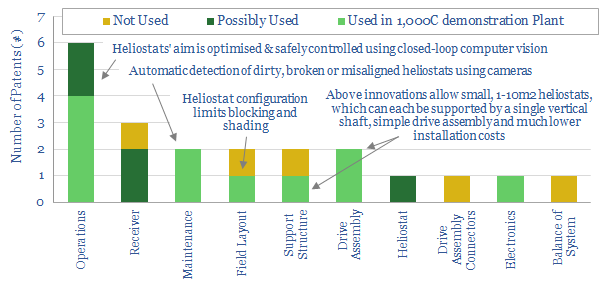
Heliogen has set a new record for concentrated solar power in 2019, generating >1,000C temperatures from an array of c370 hexagonal mirrors, which are precisely controlled using computer vision. This is almost 2x traditional CSP plants. Hence this data-file reviews 21 of Heliogen’s patents, finding impressive innovations and ultimate costs.
-
Ten Themes for Energy in 2020

Energy transition is maturing as an investment theme. ‘Obvious’ portfolio tilts are beginning to look over-crowded. Non-obvious ones are looking over-looked. This note outlines the ‘top ten’ themes that excite us most in 2020, among commodities, drivers of the energy transition, market perceptions and corporate strategies.
-
Carbon offsets: costs and leading companies?
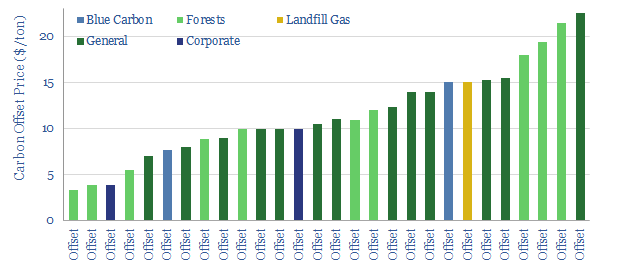
This data-file screens 30 companies that are offering CO2 offsets to consumers and commercial customers. Costs vary from $4-40/ton, as a function of project types and organizational structure. We recently used the data-file to offset 200T of CO2, in the most economical, tax-efficient and personally resonant way.
-
Solar Energy: Where’s the IP?
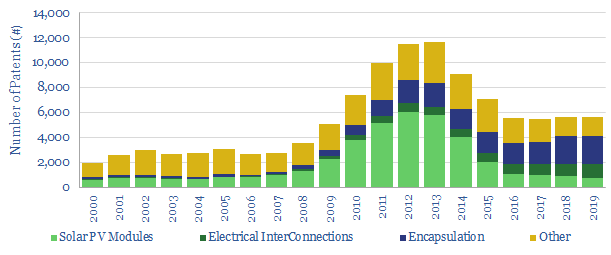
We have tabulated 110,000 solar patents. Research peaked in 2012-13, at 11,500 patents/year. It since slowed to c6,000/year. Yet Chinese companies have ramped up to 50% of all the filings, and now comprise 14 out of 2019’s top 25 solar patent filers. Majors’ patents comprise c0.5% of the total, with one SuperMajor clearly leading.
-
Solar power: the economics?
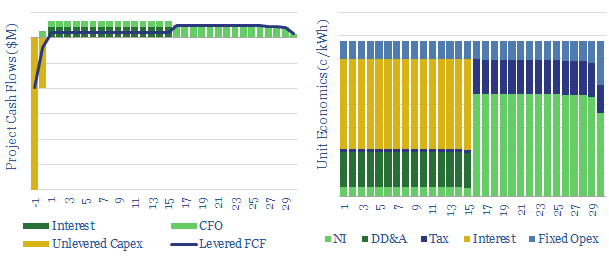
Levelized costs of solar electricity are estimated at 7c/kWh in our base case, but can realistically range from 4-40c/kWh. This data-file is a breakdown of solar costs, as a function of capex, opex, insolation, curtailment and decline rates. Solar can be highly competitive, up to 35-50% of many power grids.
-
Offshore wind costs are inflating?
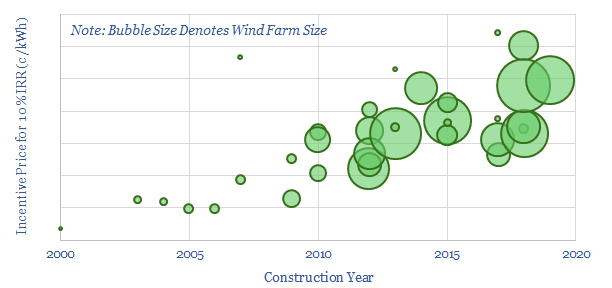
This data-file tabulates the capex costs of 35 offshore wind projects in the UK, with 8.5GW of capacity, which have been installed since the year 2000. There is little evidence for deflation. Rather, breakeven power prices appear to have risen at a 2.5% CAGR over the past decade. Our modelling is show in the data-file.
-
Energy Costs of Constructing Solar Assets
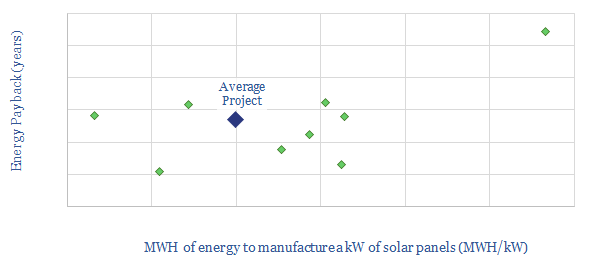
This data-file quantifies the energy costs of manufacturing solar panels, based on 10 studies and prior projects. We see the average solar project requiring 5MWH/kW, with a 2.3-year energy payback, a c10x energy-return on energy-invested and CO2-intensity of 90kg/boe (for contrast, average oil is c440kg/boe and average gas is c350kg/boe).
-
Solar water heaters: the economics?
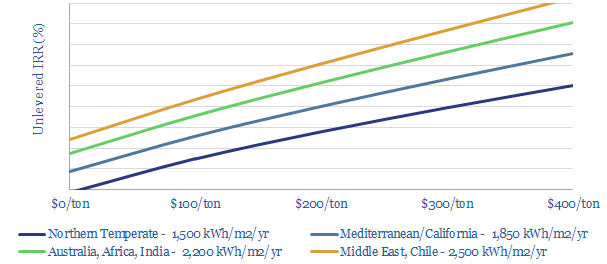
Under our base case estimates, a $130/ton CO2 price is required to achieve passable economics and incentivize rooftop solar heaters. Once installed, solar heaters save around 1T of CO2 per household per year and lower water heating bills by 50-80%. This data-file models the economics.
Content by Category
- Batteries (88)
- Biofuels (44)
- Carbon Intensity (49)
- CCS (63)
- CO2 Removals (9)
- Coal (38)
- Company Diligence (93)
- Data Models (831)
- Decarbonization (159)
- Demand (110)
- Digital (58)
- Downstream (44)
- Economic Model (203)
- Energy Efficiency (75)
- Hydrogen (63)
- Industry Data (278)
- LNG (48)
- Materials (82)
- Metals (77)
- Midstream (43)
- Natural Gas (148)
- Nature (76)
- Nuclear (23)
- Oil (164)
- Patents (38)
- Plastics (44)
- Power Grids (127)
- Renewables (149)
- Screen (114)
- Semiconductors (30)
- Shale (51)
- Solar (67)
- Supply-Demand (45)
- Vehicles (90)
- Wind (43)
- Written Research (351)